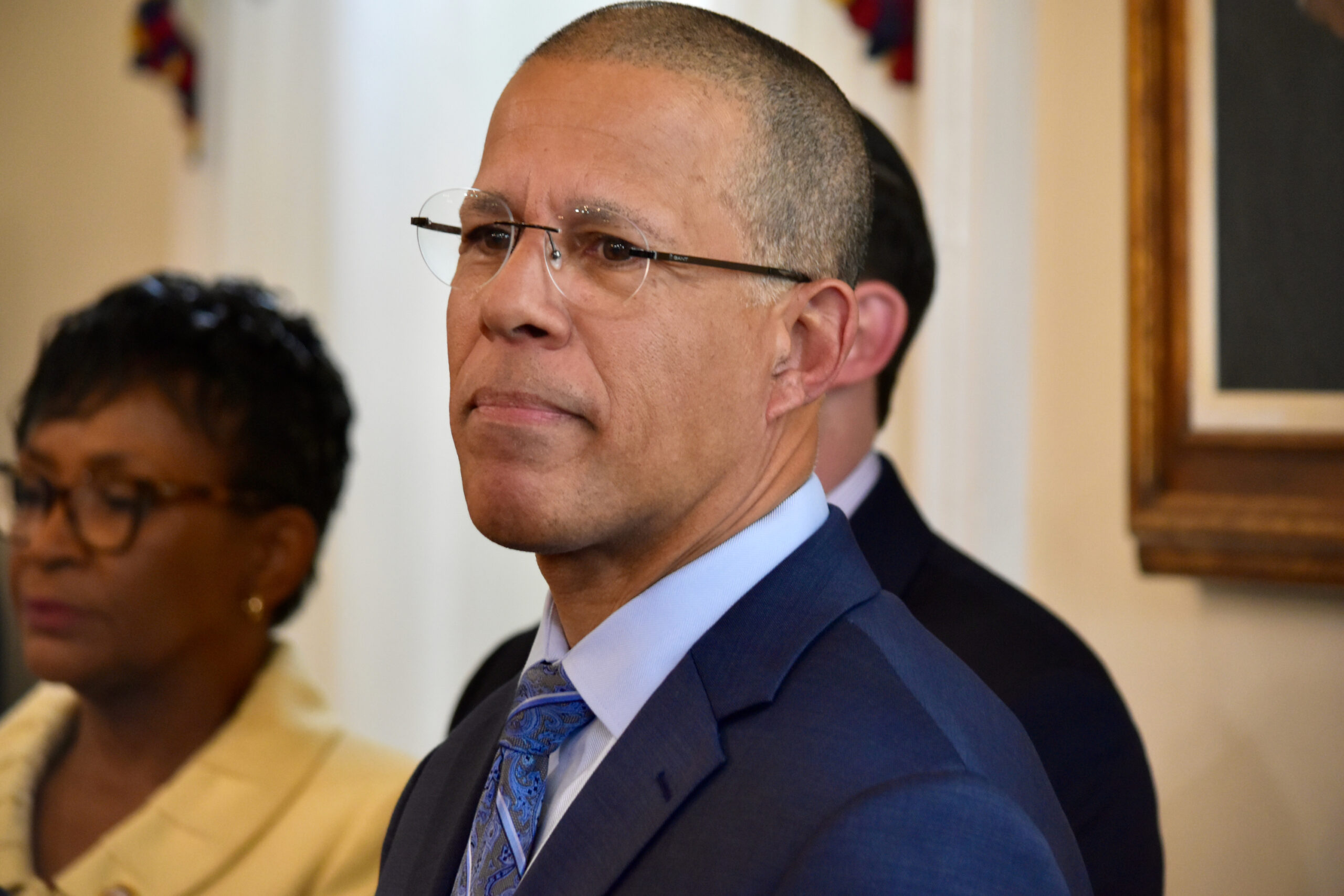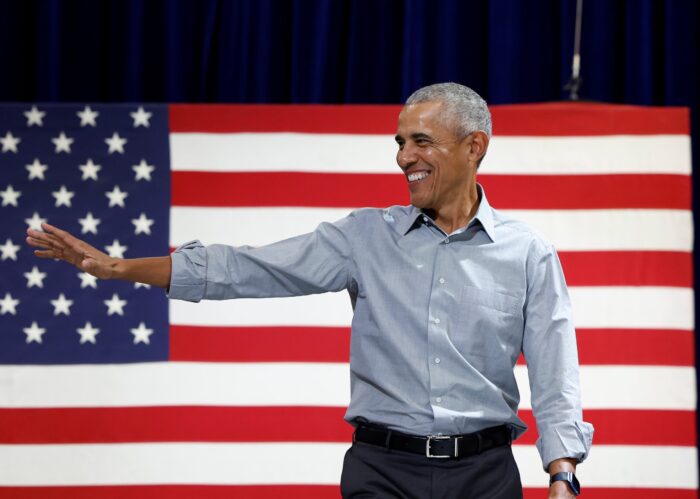Among Unsealed Records in Drug Price-Fixing Case, Email Suggesting ‘Polite F-U’ Letter to Congress
Unsealed records in a price-fixing lawsuit filed by a coalition of attorneys general against generic drug makers show company representatives suggesting a coordinated response to a congressional inquiry – with “polite f-u letters.”
Maryland Attorney General Brian E. Frosh released the unredacted complaint against Teva Pharmaceuticals and 19 of the nation’s largest generic drug manufacturers on Monday after a court ruling that previously blocked portions of the complaint could become public.
The complaint, which was filed in May in the U.S. District Court for the District of Connecticut by Maryland and 43 other states, details spikes in prescription drug prices since 2013 and “opportunities for collusion” among drug manufacturers, such as industry conferences and private dinners.
Among the evidence now public are emails between generic drug manufacturers coordinating their response to a congressional inquiry in early October 2014 from Rep. Elijah Cummings (D-Md.) and Sen. Bernie Sanders (D-Vt.). The lawmakers were investigating a series of recent spikes in generic drug costs.
Emails unsealed by the court show that lawyers for Heritage Pharmaceuticals immediately sought to coordinate a response with Teva and Mylan Pharmaceuticals.
“The consensus at this point is that the responses will be ‘polite f-u letters,” the unidentified lawyer wrote.
The 524-page complaint goes into great detail about thousands of contacts between employees at different generic drug manufacturers, frequently with the intent of raising prices — and profits — for dozens of medicines without disrupting companies’ overall share of the market for the drugs.
The drugs in the scheme included statins, antibiotics, anti-depressants, contraceptives, anti-inflammatory drugs, and others to treat a range of ailments from basic infections to diabetes, cancer, epilepsy, multiple sclerosis, HIV, ADHD and more. In some instances, the coordinated price increases were more than 1,000 percent, according to the complaint.
The attorneys general issued hundreds of subpoenas to pharmaceutical and communications companies during the investigation, compiling millions of documents including internal emails, phone and text records.
Excerpted emails include frequent industry talk of maintaining “fair share” and “playing nice in the sandbox,” along with other strategies like “fluff pricing” in which a company would intentionally submit a high-priced bid to potential customers allowing a competitor to keep their market share. In doing so, the competitor would respect the company’s market share or inflated prices for other drugs, the complaint states.
“These emails show the brazen tactics used across the industry to inflate prices and allocate market share for drugs that many Marylanders need,” Frosh said in a statement Monday. “In their own words, industry officials sought to cover up the conspiracy that we have alleged in our complaint while they simultaneously sought to mislead Congress.”
In 2013 and 2014, the attorneys general documented 2,330 calls or text messages by executives from Teva to other companies, including multiple contacts to each significant competitor.
Insider events are also documented, including an expensive dinner at a Bridgewater, New Jersey, steakhouse among at least 13 high-ranking industry executives. At the dinners, one company is usually responsible for paying for all attendees, the attorneys general wrote. When one of the attendees emailed “[y]ou guys are still buying for Mark and I, right?” another executive responded: “Well … I didn’t think the topic would come up so quickly but … we go in alphabetical order by company and [an undisclosed company] picked up the last bill. … PS … no backing out now! Its amazing how many in the group like 18 year-old single malt scotch when they aren’t buying.”
Other meetings including golfing excursions – including a September 2014 visit to Kentucky that the attorneys general allege included negotiations to allow a company’s anticompetitive entry into one drug market – and “Girls Night Out” and “Women in the Industry” events.
“This is a crazy biz but I am grateful to have friends like all of you!!!!” one executive wrote after the golf outing, according to the complaint. “Happy and honored to have you all as ‘fraternity brothers.’”
In 2015, sales of generic drugs in the United States were estimated at $74.5 billion. Today, generic drugs make up about 90 percent of all prescriptions written in the US.
The complaint includes a breakdown of price increases in wholesale acquisition costs between 2010 and 2014, with widespread collusion alleged beginning in 2013. The table shows a jump in the number of prices that increase overall, in addition to drug costs that more than doubled.

During one 12-month period in 2013 and 2014, more than $500 million of Medicaid drug reimbursement was for generic drugs whose prices had increased by over 100 percent.
The price spikes slowed dramatically after the state of Connecticut commenced its antitrust investigation in July 2014, the complaint alleges.
“The massive price spikes in the industry may have declined, but the already-high prices for most of these drugs did not go down. To date, prices for many of these drugs remain at significantly inflated, anti-competitive levels,” the complaint states.
The attorneys general say the email about sending “f-u” letters and coordinating ghost-written responses to congressional inquiries, among other actions, amount to obstruction of justice.
The states are seeking financial judgments against the companies and other relief to restore competition in the generic drug market.
“Our complaint alleges that these companies and individuals engaged in an old fashioned price fixing conspiracy. The drugs in question are used by millions of people for conditions that range from diabetes to cancer to depression, and we allege that their scheme cheated vulnerable patients, the State of Maryland and health insurance programs to the tune of billions of dollars,” Frosh said in an earlier statement.
The defendants have not yet filed formal responses to the litigation in U.S. District Court.
It is the second complaint to be filed in an ongoing, expanding investigation. The first complaint was similarly filed under seal initially in the Eastern District of Pennsylvania, and later released in full. Two defendants from Heritage Pharmaceuticals in that case have settled and are cooperating with the attorneys general.
Both cases remain pending in Pennsylvania.
Did someone forward this to you?
Get your own daily morning news roundup in your inbox. Free. Sign up here.




 Creative Commons Attribution
Creative Commons Attribution